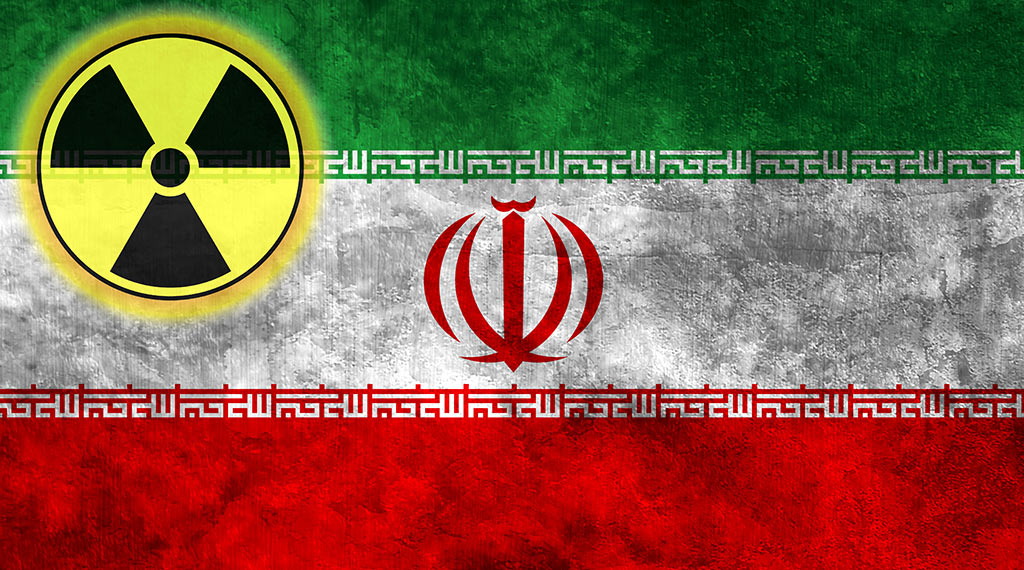Major gains in Iran’s nuclear program and what needs to be done to stop it

Joe Biden assumed office in January 2021 intending to address the Iranian nuclear program by reversing President Trump’s withdrawal from the 2015 nuclear deal with Iran (the JCPOA) and convincing Iran to resume complying with the provisions of the agreement. The Biden administration’s effort has failed not only because Iran has shown no interest in coming back into compliance with the JCPOA, it also has engaged in a serious of dangerous provocations. These include attacking oil tankers in August and enriching uranium to 60% U-235 for the first time, a level just below weapons-grade.
As a result, the Biden administration is looking for other approaches to deal with Iran’s surging nuclear weapons program.
The Center for Security Policy looked at this issue during a compelling November 3, 2021 webinar to discuss the failure of diplomatic initiatives on Iran’s nuclear program; the status of Iran pursuit of nuclear weapons, how quickly it can produce a nuclear weapon; and covert action by Israel to undermine and slow down this program. Video of the webinar can be viewed below.
Webinar: How to Stop Iran’s Nuclear Program
With Iran’s nuclear weapons program making rapid advances and Tehran’s refusal to agree to diplomatic solutions to halt or end this program, even the Biden administration is contemplating non-diplomatic “Plan B” strategies to stop an Iranian nuclear bomb.
Center for Security Policy President Fred Fleitz moderated this panel. He was joined by three of America’s leading experts on Iran’s nuclear weapons program:
- David Albright, a physicist and founder and President of the non-profit Institute for Science and International Security in Washington, D.C. Albright is coauthor of the 2021 book Iran’s Perilous Pursuit of Nuclear Weapons.
- James Phillips, a senior research fellow for Middle Eastern affairs at The Heritage Foundation. Phillips has written extensively on the Iranian nuclear program and other Middle East issues since 1978.
- David Wurmser, a senior analyst with the Center for Security Policy’s Middle East and North Africa Program. Dr. Wurmser held senior positions in the Office of the Vice President, the Defense Department, and the State Department.
James Phillips led off with a discussion of why the Biden administration’s diplomatic strategy has failed. He noted that the Biden administration is too obsessed with getting back into a bad agreement and does not want to focus on getting a better agreement or addressing Iran’s cheating on the JCPOA. Phillips called for a much tougher approach if a diplomatic agreement is to be sought by Biden officials as well as strong sanctions until Iran begins to negotiate in good faith.
David Albright discussed the nature of Iran’s covert nuclear weapons program and vast discoveries about these secret efforts revealed by the Iran Nuclear Archive documents stolen from Iran by Israeli intelligence in 2018. Albright went into great detail about a dozen previously unknown – and undeclared – facilities that were part of Iran’s nuclear weapons program. Given this information and recent advances in Iran’s nuclear program, Albright believes Iran could produce enough nuclear fuel for a nuclear weapon in about a month and could conduct an underground nuclear test in about six months. Please watch the video below for more of Albright’s detailed analysis of the state of Iran’s nuclear weapons program.
David Wurmser focused his remarks on alleged covert action by Israel to sabotage Iran’s nuclear program. Wurmser discussed a bold Israeli covert operation in late 2020 that assassinated Mohsen Fakhrizadeh, the father of Iran’s nuclear weapons program and its top nuclear scientist using a remote controlled, one-ton machine gun. Wurmser explained that the complexity of this operation demonstrates Israel’s long-range planning and determination to undermine and stop Iran’s pursuit of nuclear weapons. Wurmser also discussed other alleged Israeli covert action against Iran’s nuclear program.
- LIVE NOW – Weaponization of US Government Symposium - April 9, 2024
- CSP author of “Big Intel” is American Thought Leaders guest on Epoch TV - February 23, 2024
- Four weeks after release, Big Intel remains a #1 Amazon bestseller - February 13, 2024
